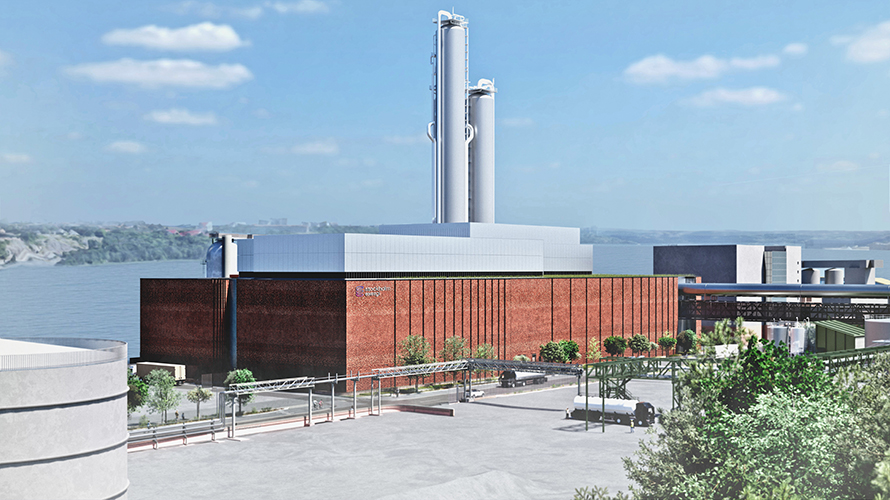Sweden will build the first large-scale carbon capture bioenergy plant in the world, in what is being hailed as a pioneering step forward.
Carbon capture is a divisive topic. For a long time, it was dismissed as a crutch for the fossil fuel industry that would allow oil and gas companies to keep polluting long into the future.
But the technology’s role in the energy system now looks more inevitable than questionable. The International Energy Agency says that carbon capture and storage (CCS) will be needed and that about 5% of global power will be generated using it by 2040.
CCS is still a relatively nascent application. The tech has been used for years in the fossil fuel industry to boost oil production but its rollout in the green economy has been limited to small scale demonstrations.
That is all about to change thanks to Stockholm Exergi, a power provider in Sweden’s capital, which yesterday made a final investment decision on a large-scale bioenergy plant that it will build and equip with carbon capture tech.
When operational, the plant will burn forestry residues like wood chips, sawdust and tree offcuts that would otherwise just go to waste.
The project has a price tag of more than a billion euros, which the firm is raising through a mixture of public support and contracts with private companies like Microsoft, which will pay handsomely for the carbon offsets that Exergi will generate.
Many large multinationals, especially those in the tech sector, will need to turn to companies like Exergi in order to offset the emissions they generate from data centres as there is not enough renewable energy to go around.
Scheduled to be online in 2028, the plant will aim to capture and store more than 800,000 tonnes of CO2 every year. It intends to achieve this by partnering with a Norwegian company that will store CO2 under the seabed.
That Northern Lights project has been able to announce an expansion of its operations thanks to the Exergi decision, as it means there will be enough demand for its services to scale up and attract more investment.
Questions will inevitably be continued to be asked about the sustainability of the raw materials being burned in the first place. Sweden’s forestry industry is not universally loved, so this will remain a bone of contention.
There is also the simple fact that CCS will only be able to provide emission reductions that make up a fraction of those that continue to be caused by the burning of fossil fuels. It is therefore not a replacement for the phaseout of oil and gas.
But there is an air of inevitability about the rise of CCS. Not just from a climate standpoint and our eventual need to remove CO2 from the atmosphere at scale. The business case for the technology is becoming more and more robust.
Exergi is set to deal initially at least with the storage side of carbon capture, but there is also the utilisation aspect of CO2, which can be used as a raw material in the production of sustainable fuels.
Demand for greener jet fuel, cleaner cement and other products that need to use carbon as a form of feedstock is set to skyrocket.
If facilities like Exergi’s become more widespread and can be linked to the right infrastructure, such as ports or even nearby factories, then a whole carbon economy can be built from the ground up.
That is why Sweden’s pioneering step into the world of large-scale carbon capture is so important. We have built a world that is not perfect, so we need a non-perfect solution. CCS appears to be putting its hand up and providing some answers.
Want more updates and analysis of what is happening in the world of energy and climate? Interested in finding a job in the sector or more information about public tenders? Sign up to our Energy Rundown newsletter here!

